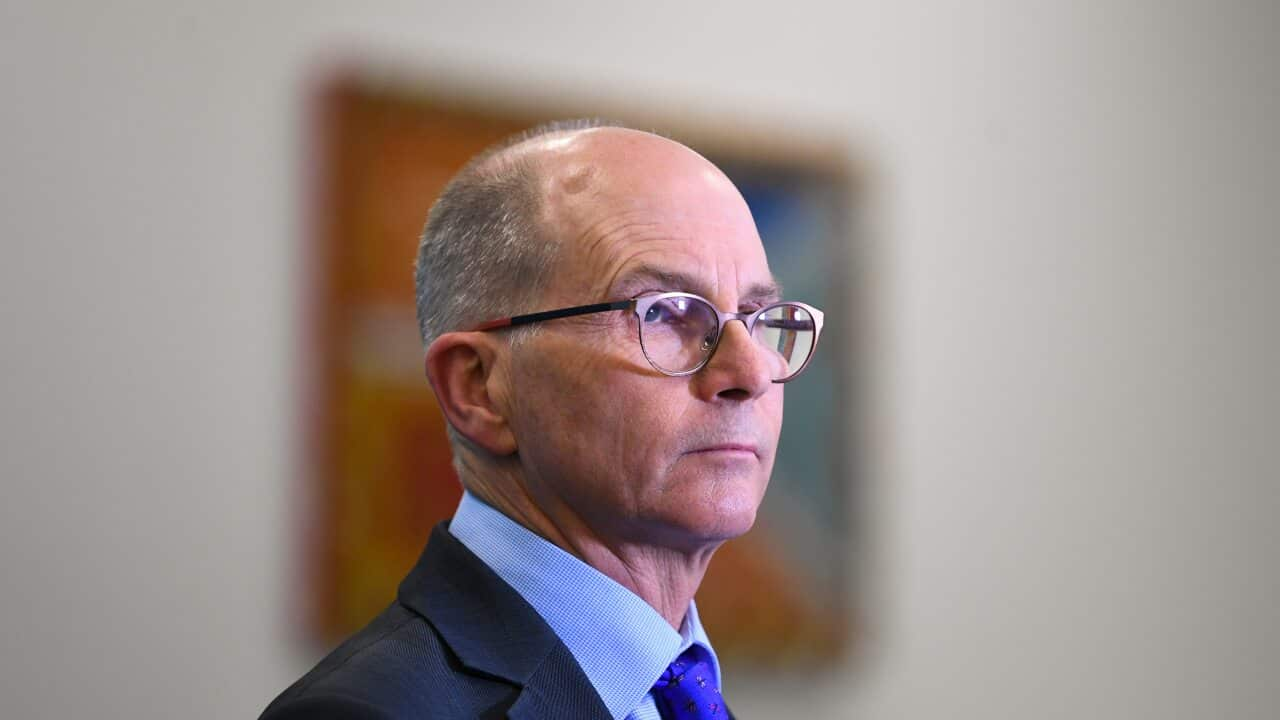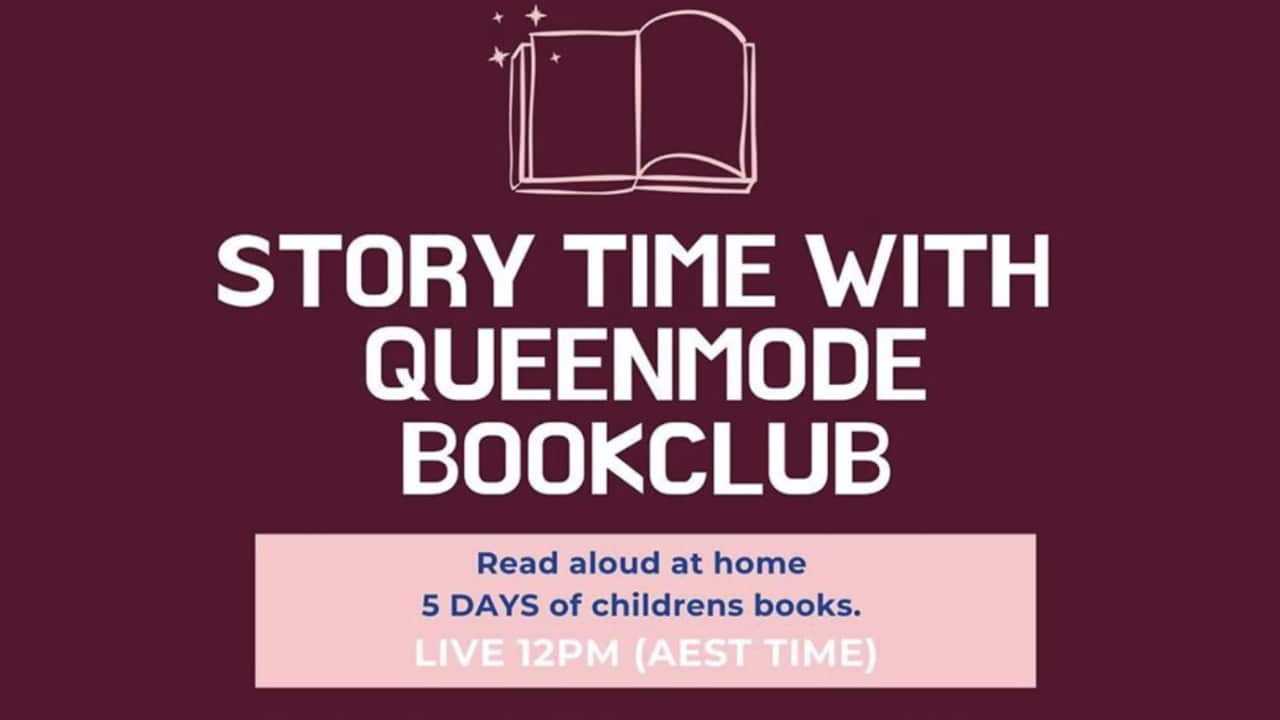April is the beginning of the tourism season in Broome, Western Australia.
But instead of an influx of bookings, this year, Bart Pigram is coming to terms with a flood of cancellations,
The cancellations haven’t just hit his business Narlijia Tours, but has also affected gigs with his band and his role in the theatre production Bran Nue Dae.
“Really I’ve lost about three jobs this year with the part-time band, gigs and stuff as well,” he told NITV.
“Everything has just gone, disappeared, the magic Coronavirus wand. Basically I’m just trying to pull anything positive out of it.
“I’m trying to reassess, what’s going to happen with the tours, how I can make it better. It’s a bit like what do I do, what do I do with my music?
“It’s a good time to be writing music, writing songs and producing some stuff.” Mr Pigram said as well as thinking up new music and new ways to keep his business afloat, social distancing restrictions also present an opportunity to share culture with the world.
Mr Pigram said as well as thinking up new music and new ways to keep his business afloat, social distancing restrictions also present an opportunity to share culture with the world.

A Narlijia tour through the mangroves. Source: Facebook: Narlijia Experiences Broome
“I think this is a great opportunity that we all jump online and share our different regional areas, our tribal areas and language groups and get it out there,” he said.
“It gives the opportunity for people who don’t know about these things to learn, whether they’re blackfullas or white people, it doesn’t matter.
“It’s the world wide web and it’s available for everybody. These are just some of the positive things that we can pull out of this troubled time.”
‘We’ll get through this’
In Wagga Wagga, NSW, Mark Saddler, who owns Bundyi Tours, is also focusing on the positives.
A summer of natural disasters meant that tourism in the region had already taken a hit but he said it’s nothing he can’t get through.
“We’ve come through a major drought in Wiradjuri country and then we’ve had the horrendous fires that wiped out people’s livelihoods and all our beautiful animals and people’s country,” he said.
“There’s been a bit of slowing down of industry and now we’ve got this Coronavirus thing.
“Our people have seen viruses come into our country before that were pretty devastating to us.
“We’ll survive and we’ll get through this as we’ve done before.”
In the meantime, Mr Saddler is taking his tours online, using a green screen he has set up in his workshop.
“I’ve taught myself how to use blue screen technology, so go out and buy some bits and pieces, better cameras, better microphones, go down to Spotlight and get a big green tarp or a bit of felt,” he said
I stand in front of that and then do 2-3 minute talks. I talk in front of a blue screen and then I come back into my office and use some technology to get that blue screen out.
“I use my photography in the background of country and places and then what I do is use my tablet, because I do a bit of art, I use a sketching app.
“So I do my talks and then design some art to go with it.”
‘Bigger and better’
Mr Saddler said he’s expecting domestic tourism to boom once border restrictions are lifted.
“We will get through this and for the operators that can hang on and use our savings to get us through this we will come out the other side,” he said.
“I believe Aboriginal tourism will be booming.”
The Coronavirus has meant Jellurgal Cultural Centre on Queensland’s Gold Coast has had to shut its doors.
The centre’s manager Emma Rolls said it wasn’t an easy decision to make, but they had to do it for the safety of their staff.
“When they started cancelling events we started we started getting cancellations - we do Welcome to Country and dance performances so we started getting cancellations with those,” she said.
“That was the start of it, then we started having cancellations with our early learning centres and our tour groups and it sort of kept going.
“Then we came to the conclusion that once we had to cancel our tours, for the safety of our staff and visitors we had to close the centre.” But Ms Rolls said she’s staying positive, and the team is planning to come out the other side with even more to offer.
But Ms Rolls said she’s staying positive, and the team is planning to come out the other side with even more to offer.

Some of the dancers from Jellurgal Cultural Centre. Source: Facebook: Jellurgal Aboriginal Cultural Centre.
“We’ve been taking this time to revamp our current tour offerings,” she said.
“We’re hoping to come back bigger and better at the end of this.”
‘Going to struggle’
But it will be a long road to recovery for a lot of tour operators, especially for those, who like Mr Pigram in Broome, the tourism season would have normally started this month.
The Western Australian Indigenous Tour Operators Council (WAITOC) CEO Robert Taylor said it’ll be a long time before ‘business as usual’ returns.
“In the Kimberley by the time they get through this it’ll be too late to get any domestic travel because of the wet season that will come in so they’re really going to struggle,” he said.
“In other parts of the country I think it’s a discretionary spend, tourism. People at the moment are not employed or they’re getting a very low income.
“The first thing they will think about when they do get their jobs back is they’re going to need to catch up on the home loans or whatever they’ve got going on in their own lives before they say ‘let’s go on a holiday’.
“I think holidays will be a bit of a second thought, so I think the government has to start thinking ahead.
“It’s not just going to come back instantly.”
In the meantime, it’s important to support one another through a tough time for the industry.
Ms Rolls said Jellurgal will be showcasing local talent on a new website.
“We’re looking at launching an online store very soon,” she said.
“We’ve just been doing some testing so we’ll be selling items on there from local artists, jewellery, educational resources and artwork and we’re really excited to get that out there to help support our local artists.
“I know a lot of other centres have the online platform out there already to be able for people to buy items and support the community.
“I think it’s really important for people during this time, sitting at home to continue to do that.”
While Mr Pigram said checking on friends and family is just as important as supporting local business - if not more important.
“We gotta check in on each other, family and friends as well because I think that’s really important that we do stay connected still,” he said.
“Some people have been hit harder than others, some will react differently to it all. Our wellbeing and looking after ourselves has to come first.
“Business can come later, don’t worry about that, I think we’ve got to look after ourselves first.”
Watch The Point on Wednesday evenings at 8.30pm on NITV.
Get involved on Twitter and Facebook using #ThePointNITV












